Jung in Ireland
A Final Program with the Monks of Glenstal Abbey
The Other: The Role of Projection
March 24–30, 2025 | County Limerick
Program Overview
What in our psyche might be activated when we encounter someone who clearly fits into the description of “Other” or “Outlier”? What archetype or archetypal image might manifest itself in our Unconscious and set in motion a range of emotions — from a judgmental attitude motivating us to keep our distance and refrain from engagement, attraction, caution, or even fear? What projections might we have when we interact with someone who seems so different from us and our way of life — someone of another race, religion, sexual orientation or even political views? When dealing with projections, it is important that we understand what is being galvanized in our own Unconscious. Otherwise, these projections might overwhelm us and lead to premature judgment and stereotyping. Such projections may prompt us to cut off the possibility of a fruitful relationship or, sadly, have the potential for us to act impulsively and set in motion what might turn out to be a destructive association.
From Jung’s perspective, consciousness often begins through projection; it is a way we learn who we are. Encountering the “other” in ourselves — what Jung calls the Shadow within us — is an important psychological tool to help us individuate and become more conscious. It helps us understand not only ourselves, but understand and accept others who are different from us and may have much to offer. Moreover, when we use the term “other” we may also be referring to “outliers” — individuals who don’t easily fit into society, though society’s attitude towards them can be positive or pejorative.
In this regard, seen from a positive perspective, Malcolm Gladwell’s book Outliers defines outliers as people who don’t fit into society’s category as “normal” yet achieve success in ways that have contributed to society in their own way and on their own terms. For example, some of the outstanding and important figures in history could be termed outliers, including Joan of Arc, Mozart, Marie Curie, George Eliot, Thomas Edison, and Steve Jobs to name a few. Or, closer to home, Jung himself, often dismissed as a mystic by mainstream psychology, might also be described as an outlier. Alternatively, in his book Stigma, Erving Goffman, a highly respected social psychologist and writer, identifies different types of individuals who he categorized as “others” and are often stigmatized, including immigrants, those with physical handicaps and those suffering from addiction, alcoholism, or mental disorders.
During the course of this program with the monks of Glenstal Abbey, we will examine Jung’s perspective on the role projection and shadow play in our own lives. Finally, and most importantly, we will explore this theme in an attempt to understand what we might gain from finding the “Other” or “Outlier” in ourselves.
March 24–30, 2025 | County Limerick
The Other: The Role of Projection
Cost: $2,990* includes:
- Six nights’ accommodations at the Castletroy Park Hotel
- Transportation by coach to and from the hotel to Glenstal Abbey throughout the program.
- All presentations and discussions
- Full Irish breakfast daily; all breaks for coffee, tea, and scones; two lunches; and four dinners
*All program costs are based on double occupancy. Single supplement: ($450) and gratuities ($135) additional. Cost after January 30: $3,150.
CEs and Certificates of Attendance
The Jung in Ireland Series — both programs: in County Limerick with the Monks of Glenstal Abbey and the Seminar in County Galway — offer continuing education credits and certificates of attendance.
The Setting: County Limerick
During this week we will spend our days in picturesque Country Limerick where our sessions will be held at the Glenstal Abbey, a short distance from our accommodations at the Castletroy Park Hotel and the City of Limerick. Contrasting with the sleepy country villages, Limerick City is a busy and well-developed city, straddling the banks of the River Shannon. The city has an interesting history, which was founded by the Vikings, but eventually taken over by the Irish. Limerick was developed and fortified by the Anglo-Normans during the Middle Ages. King John’s Castle overlooking the river still stands as a reminder of this era. Limerick is remembered by many as the setting for Frank McCourt’s book, Angela’s Ashes, though the city has been much modernized from the desperate times described in McCourt’s time. Today Limerick is a vibrant multi-cultural city.
Glenstal Abbey
Glenstal Abbey, (aerial view at the top of this page) home to a community of monks — many renowned scholars among them — is a Benedictine monastery on the southwest coast of Ireland. It sits on over 300 acres, with streams, lakes, woodland paths, and an enchanting walled garden. Surrounding a castle built in the romantic Norman style, the Abbey houses a world-famous collection of Russian icons and one of the most important private libraries in Ireland. The library includes a substantial collection of antiquarian books — many dating back to the fifteenth century — on Irish history, Irish literature, biography, and art.
Accommodations: The Castletroy Park Hotel
The Castletroy Park Hotel, situated within walking distance of the University of Limerick and the Shannon River, and a short drive to Limerick’s center, will be an ideal location for our program at Glenstal Abbey. A 20-minute drive from our hotel to the Abbey, the Castletroy Park Hotel is also within a short drive of Limerick’s major landmarks, including John’s Castle and the famed Hunt Museum. The hotel’s contemporary-style rooms were designed with comfort and relaxation in mind, with each of its rooms including free Wi-Fi, flat-screen TVs, a tea & coffee station, and en-suite bathroom with walk-in showers. In addition, hotel guests have free access to its outstanding recreational facilities, which include a health club, large indoor swimming pool, hot tub, and steam room.
Meals together…
Meals throughout the week are buffet style, superbly prepared and presented — a wonderful time to get to know one another and interact with participants and presenters. In addition, each day begins with a hearty, full Irish breakfast, complemented by a selection of fruit, local Irish cheeses, and fresh breads. Our breaks will feature fresh brewed coffee, traditional Irish and herbal teas, and freshly baked scones.
Opening and closing dinners (March 24 and 29) will be at the Castletroy Park Hotel and two lunches at Glenstal Abbey (March 25 and 26). There will be a a festive evening dinner with some of the Monks of Glenstal Abbey on March 28, and a traditional Irish dinner at the Castletroy on Thursday March 27, following the outing led by Brother Colmán Ó Clabaigh.
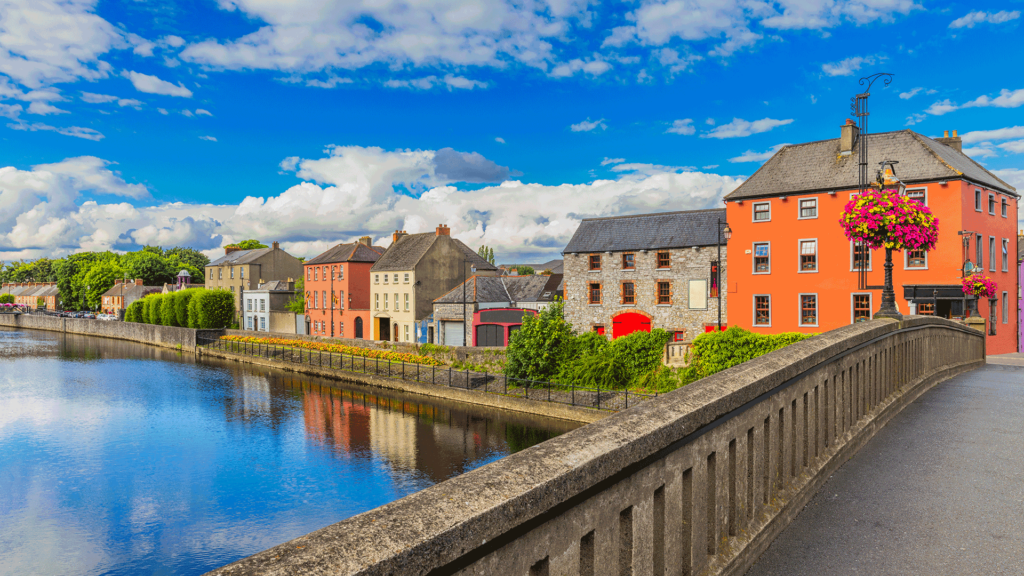
Optional Outing: Thursday, March 27
Broomsticks and Bishops: Exploring Medieval Kilkenny
Kilkenny is arguably Ireland’s best preserved medieval city, but its placid veneer conceals a murky past. In 1324, Kilkenny witnessed one of the most controversial trials in medieval Ireland, that of the wealthy and thrice-married matron, Dame Alice Kytler for maleficium or witchcraft. Led by award-winning historian, Brother Colmán Ó Clabaigh, we will explore Kilkenny’s past through the eyes and experiences of its most famous daughter.
The trip will be limited to 35 participants; details and sign-up information will be sent prior to the beginning of the program seminar.
Faculty
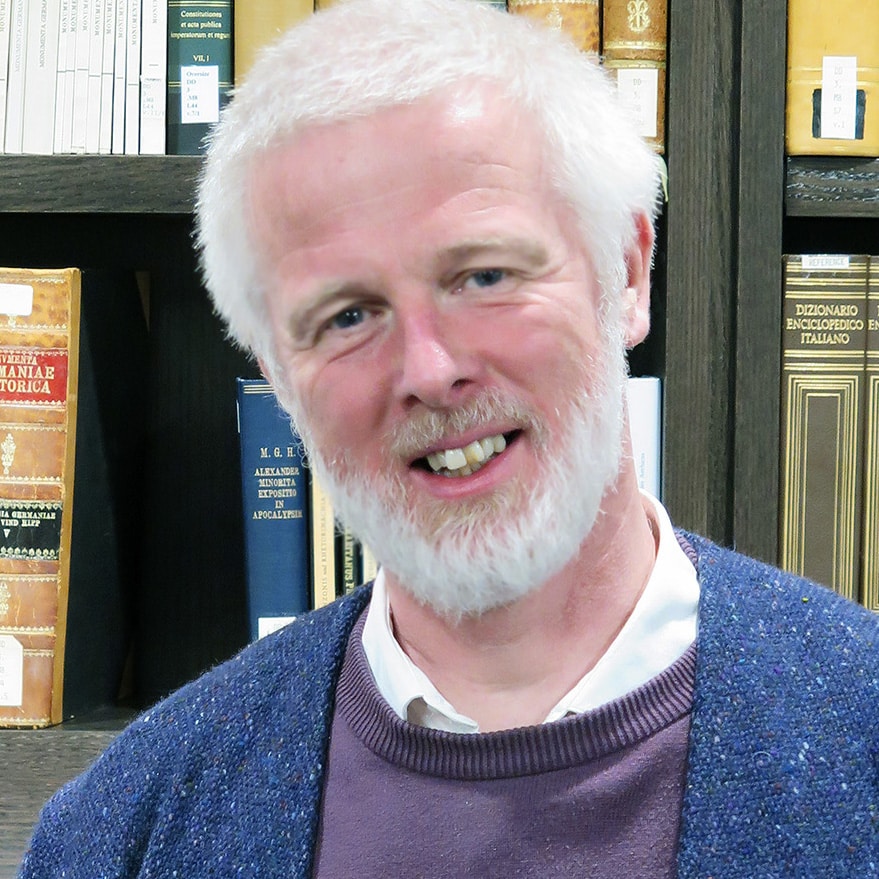
Colmán Ó Clabaigh has been a monk at Glenstal Abbey for over thirty years. He is a medievalist specializing in the history of monastic and religious orders in medieval Ireland and has published and edited numerous books and articles in this field. His monograph, The Friars in Ireland, 1224–1540 (Dublin, 2012) was awarded the Prize for Irish Historical Research by the National University of Ireland in 2013. He is currently working on a book on religion and society in medieval Ireland.
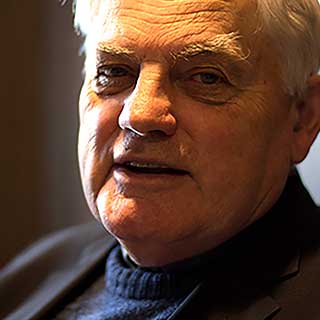
Mark Patrick Hederman, former abbot of Glenstal Abbey, has been a monk of Glenstal Abbey for over 45 years. Founding editor of The Crane Bag Journal of Irish Studies, he spent the first years of the new century wandering in search of the Holy Spirit, allowing inspiration and coincidence to lead him. Among his many publications are Walkabout: Life as Holy Spirit; Kissing the Dark: Connecting with the Unconscious; Underground Cathedrals; Dancing with Dinosaurs; The Opal and the Pearl, and his most recent book, Crimson and Gold: Life as a Limerick.
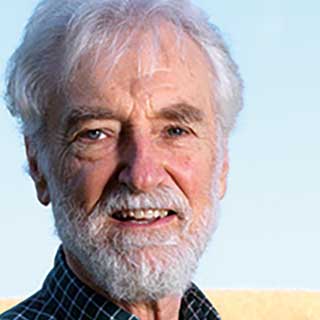
John Hill, MA, earned a diploma in analytical psychology from the Jung Institute of Zurich, where he served for many years as training analyst. Additionally, he has earned degrees in philosophy from the University of Dublin and Catholic University in Washington, DC, has a private practice in Zurich, and is a training analyst at ISAP Zurich. Born and raised in Ireland and a graduate of the Glenstal Abbey School, he has published, among others works, “Celtic Myth”; “Dreams”; “Christian Mysticism”; and At Home in the World: Sounds and Symmetries of Belonging.
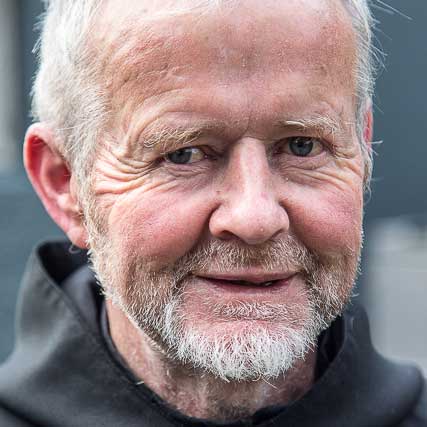
Anthony Keane, OSB, who joined the Abbey of Glenstal in 1965 to teach in the Abbey School, studied archaeology and the Irish language in Dublin, and theology in Rome. Following his studies, Father Keane embarked on pilgrimage for a year in India before returning home to tend the forest in Glenstal and serve as the monastery’s forester. Situated on several hundred acres, Glenstal’s forest contains some of the oldest and most magnificent trees in Ireland.
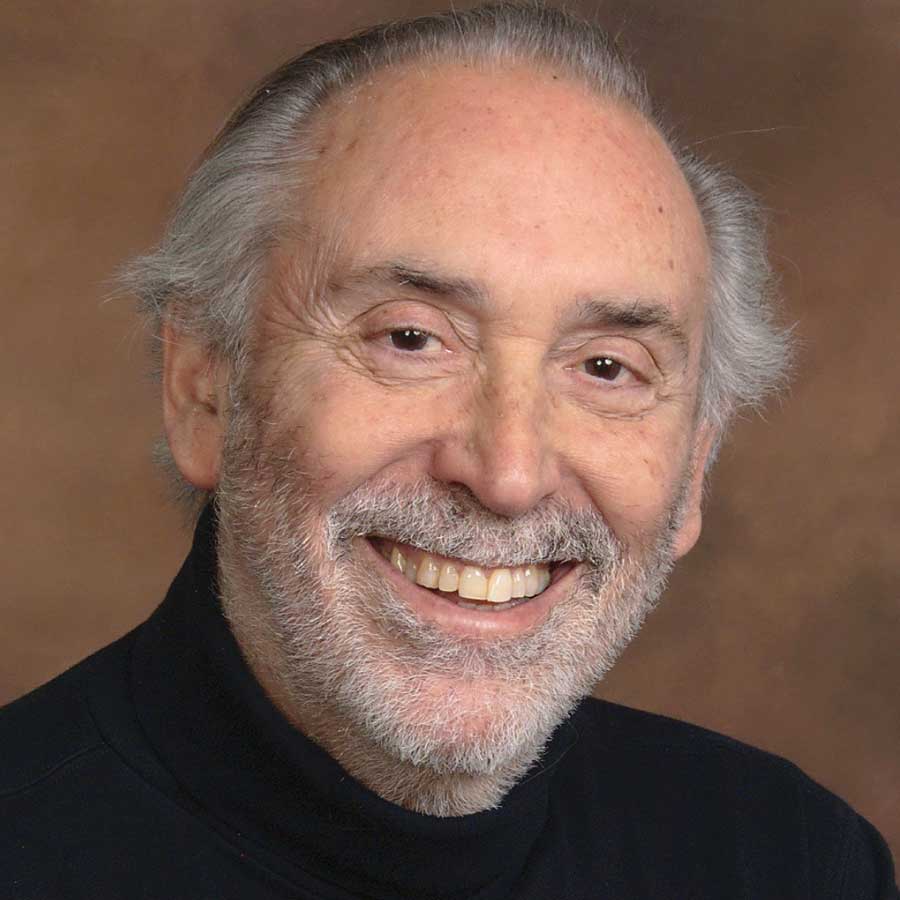
Aryeh Maidenbaum, PhD, Jungian analyst, is co-director of the New York Center for Jungian Studies. His publications include “The Search for Spirit in Jungian Psychology”; “Sounds of Silence”; “Psychological Types, Job Change, and Personal Growth”; and “Anti-Semitism: The Jungian Dilemma”, which appeared in a recent book entitled Psychiatry and Anti-Semitism. In addition, he was co-editor of Lingering Shadows: Jungians, Freudians and Anti-Semitism; and editor of and contributor to, Jung and the Shadow of Anti-Semitism. His newest book is Jung and the Jewish Experience: Reflections by a Jungian Analyst, published by Routledge in December 2024.
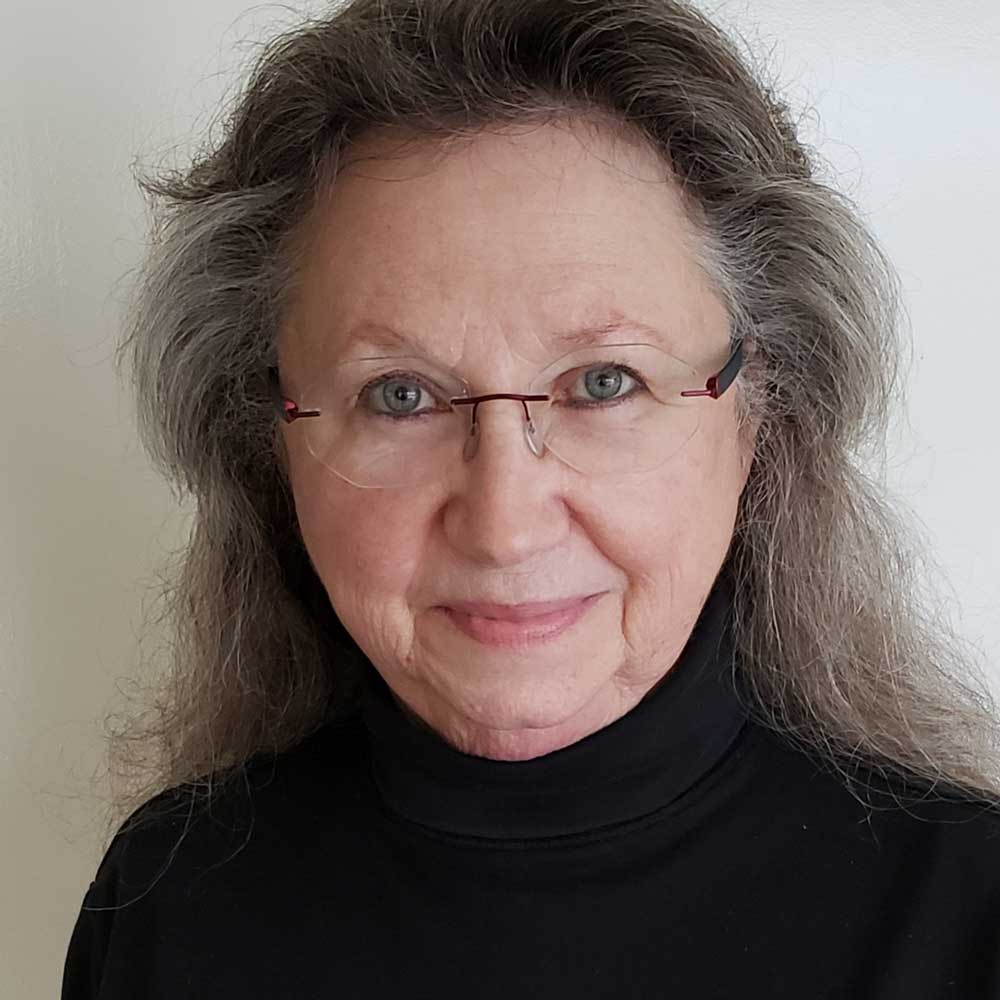
Janis M. Maxwell, PhD, is a Jungian analyst with a private practice in Easton, Maryland. She is a graduate, faculty member and supervising training analyst of the C.G. Jung Institute-Zurich and is currently a member of the Curatorium at the C.G. Jung Institute in Zurich. Dr. Maxwell is past president of the Philadelphia Jung Institute and has served as director of training for that Institute as well as the Inter-Regional Society of Jungian Analysts. She worked as a corporate officer of a major Fortune 500 company for 18 years before becoming an analyst, and holds degrees in mathematics and psychology.
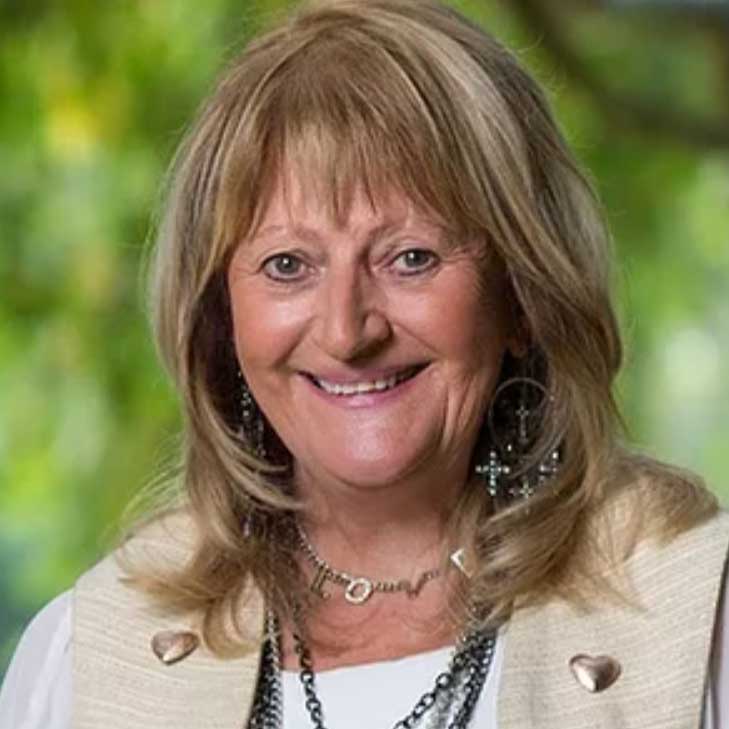
Nóirín Ní Riain, PhD, an acclaimed spiritual singer, has introduced the Dalai Lama at official occasions in Ireland and elsewhere. A theologian, musicologist, and recording artist who was awarded the first doctorate in theology from the University of Limerick, she has written several books, including Listen with the Ear of the Heart: An Autobiography and Theosony: Towards a Theology of Listening. Dr. Ní Riain was ordained as a minister in 2017 with One Spirit Interfaith Seminary in London.
Diana Rubin, LCSW, co-director of the New York Center for Jungian Studies, has organized and led Jungian Seminars and Study Tours for over 25 years. Currently she has a private psychotherapy practice in New York City and New Paltz, New York, where she works with individuals and groups and also works remotely. A former staff psychotherapist at the Postgraduate Center for Mental Health’s Institute for the Performing Artist, Ms. Rubin has a special interest in the interface of psychotherapy and the creative process. 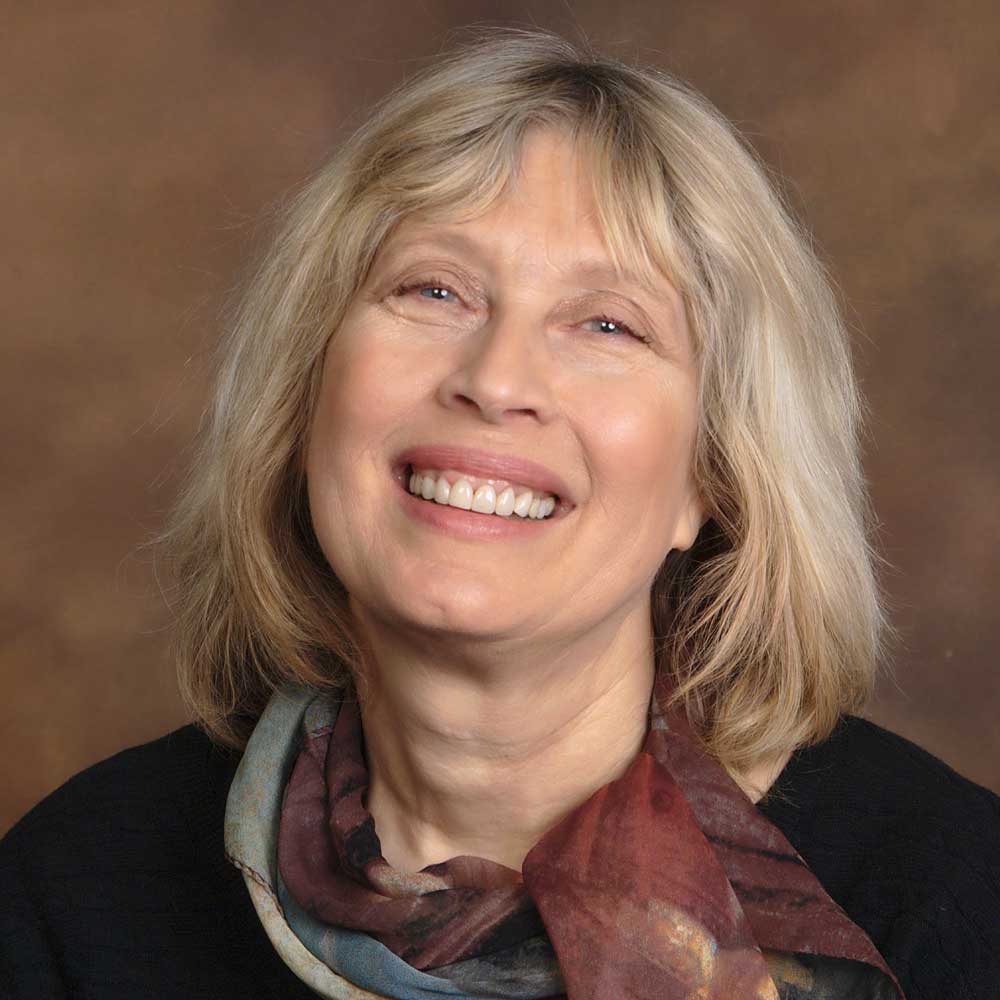
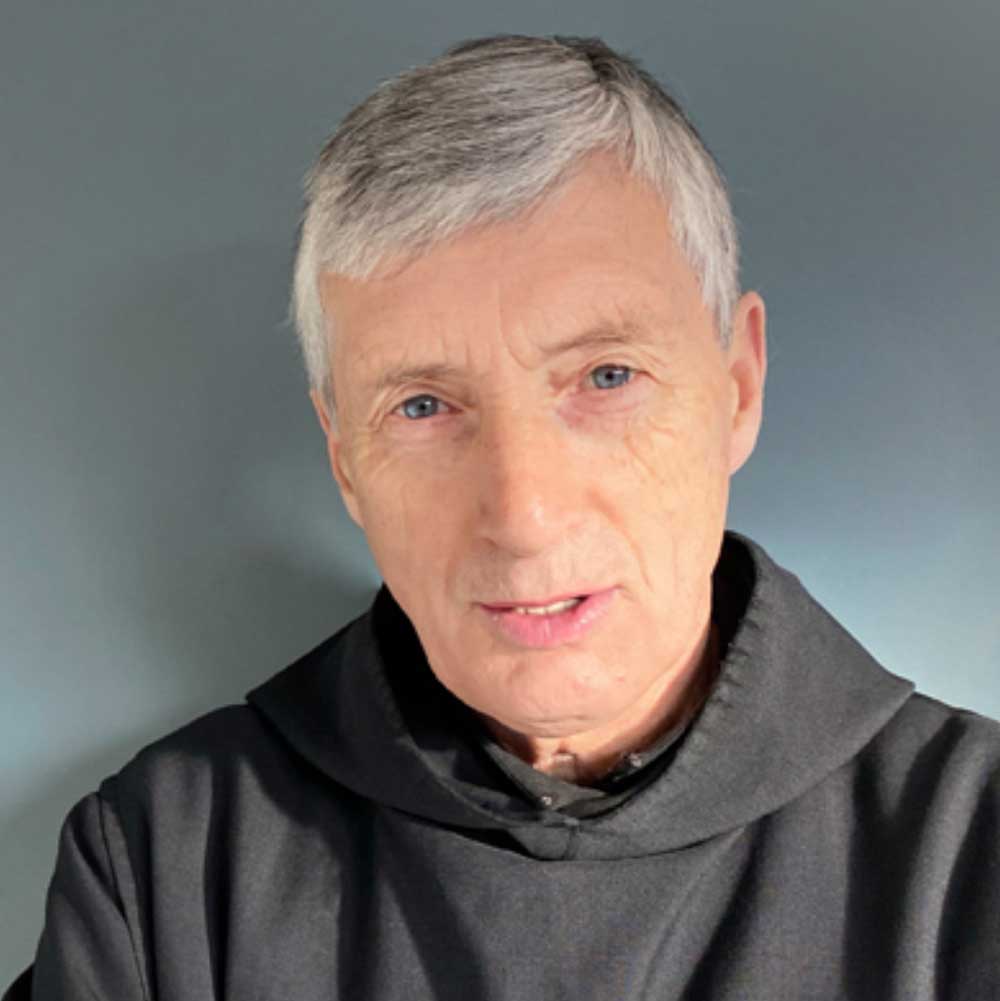
Father Simon Sleeman, MA, earned a BA in psychology and philosophy at University College, Dublin, and MAs in theology and organizational development. Ordained in 1991, Father Simon was born in Berlin and educated at the Glenstal Abbey School. Headmaster of Glenstal’s Secondary School from 1991 to 1998 and for many years bursar of Glenstal Abbey, he notes that “providential encounters with psychotherapy, poetry, and alternative philosophies have helped me to forge another understanding of life.”
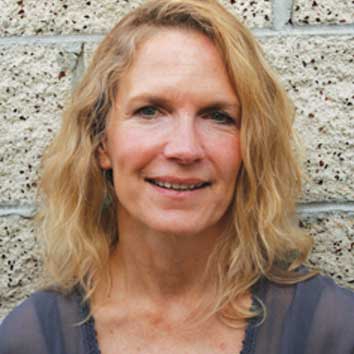
Monika Wikman, PhD, is a Jungian analyst, astrologer, cranial sacral practitioner and author of Pregnant Darkness: Alchemy and the Rebirth of Consciousness; editor and contributor to Living with Fire: The Visionary Alchemical Work of Nathan Schwartz Salant. A graduate of the Jung–Von Franz Center for Depth Psychology in Zürich, she taught for many years in the graduate department at California State University, Los Angeles, and was the principal investigator of dream research at UCSD Medical Center on “Dreams of the Dying.” She has worked both as an analyst and a cranial sacral therapist with the dying and is director of The Santa Fe Center for Alchemical Studies, with workshops, publications, and research underway. Her work focuses on psyche-body unity, and healing states of consciousness.
Daily Schedule
Monday, March 24 | at Castletroy Park Hotel
Check in at the Castletroy Hotel, located within walking distance of the University of Limerick and the Shannon River, and a short drive to Glenstal Abbey.
At 5:00 p.m. we will gather together for welcoming remarks by Diana Rubin, and an opening presentation and overview by Aryeh Maidenbaum: Reflections by an “Other,” followed by refreshments and an opportunity to get to know one another before ending the evening with a festive dinner at our hotel.
Tuesday, March 25 | at Glenstal Abbey
A full Irish Breakfast served daily from 7:00 a.m.
After breakfast at our hotel, we will depart the Castletroy for our first day at Glenstal Abbey, home to a unique community of monks – known for their hospitality, world-renowned choir, remarkable collection of Russian Icons, and a prestigious public school. After welcoming remarks and an introduction to Glenstal Abbey by Abbot Columba McCann, we will hear a presentation from former Abbot Mark Patrick Hederman on The Ancient Mariner as Projection.
Following a break for coffee, tea and scones, we will have an opportunity for further discussion and dialogue with Mark Patrick Hederman discussing A Flash of Golden Fire: The Birth, Death, and Rebirth of the Modern Soul in Coleridge’s “The Rime of the Ancient Mariner,” Tom Elsner’s new book.
After the conclusion of this morning’s presentation and discussion, we are invited to join the monks of Glenstal and participate in (or observe) the ritual of Mass, with its traditional Gregorian chant (an optional activity available each day throughout the week) and enjoy lunch at Glenstal (included). After lunch there will be an opportunity to hear from John Hill and Mark Patrick Hederman on the history of how Glenstal’s world famous Icons came to the Abbey. Tea and refreshments will be served before we divide into smaller groups for a private viewing of Glenstal’s famous Icons, and learn more about their significance. We will then return to the Castletroy in time for dinner on our own.
Wednesday, March 26
Returning to Glenstal, today’s program will begin with a presentation by Jungian analyst, Janis Maxwell, Outliers and Visionaries Who See Beyond the Boundary of the Known. Janis, facutly member and supervising analyst of the C.G. Jung Institute in Zurich, holds degrees in mathematics as well as psychology, and has worked as a corporate officer of a major Fortune 500 company. Drawing on her experience and wider perspective, she will share with us some of the insights and experience of the role outliers and visionaries have played in our culture.
A coffee and tea break will follow Janis’ presentation with time for group discussion and lunch (included) at Glenstal. This afternoon’s program will include an optional tour of Glenstal’s grounds led by Father Anthony Keane, the monastery’s forester — a monk with almost encyclopedic knowledge of the many varieties of trees on the Abbey’s 300 plus acres of land, followed by a presentation by scholar Brother Colmán Ó Clabaigh, Encountering the Other: Jews, Witches and Heretics in Medieval Ireland, before returning to the Castletroy in time for dinner on our own.
Thursday, March 27
Free day… OR join an (optional) outing led by Brother Colmán Ó Clabaigh: a field trip to Kilkenny, site of the 1324 witchcraft trial of Dame Alice Kettler, the first known witch to ride a broom stick!
Returning to our hotel, this evening we will enjoy a buffet dinner at our hotel (included).
Friday, March 28
This morning, at our hotel, an opportunity to hear noted Jungian analyst Monika Wikman, whose field of special interest is the interface of Jungian psychology and Alchemy. She will present A Diamond in the Making: the Fusional Complex and the Evolution of the Psyche and explain how this topic relates to our theme and its importance in deepening our understanding of the psychology and ideas of Jung.
Following Monika’s presentation, we will drive to the charming village of Adare — whose architectural wealth, scenic beauty, thatched roofs, and medieval monasteries make it an ideal place with to wander about, shop for gifts, and have lunch on our own before driving to Glenstal for a full afternoon and evening.
At Glenstal, following our visit to Adare, we will “Meet the Monks,” a unique opportunity to gather in small groups with some of the monks of Glenstal who will share with us their personal experiences and duties at the Monastery, and respond to questions participants may have.
After our smaller group meetings with the monks, we will reconvene for tea and cookies before enjoying a special performance by Noirin Ni Riain, one of Ireland’s most noted performers of sacred music and considered a national treasure, entitled The Music of What Happens — Fionn Mac Cumhall.
This evening, participate in, or observe, the service of Vespers (optional) followed by a festive, sumptuous dinner in the Barrington Room of the Castle with some of the monks of Glenstal Abbey (included) where we will enjoy a sumptuous dinner and honor the monks of Glenstal Abbey, who have inspired us to hold an annual program at the Abbey for the past thirteen years. Our full and long day will end with the (optional) opportunity to observe, or participate, in Compline — a short special night service before returning to our hotel.
Saturday, March 29
Today, our final day at Glenstal, will begin with a presentation by Simon Sleeman, a monk of Glenstal for over 40 years. Father Sleeman, who has earned degrees in philosophy and psychology, and an M.A. in organizational development, has served the monastery in many different capacities including headmaster of Glenstal’s prestigious school and Bursar of the monastery. Father Simon will share some of his own life experience as he addresses the theme of When the “It” Becomes an “I”: Welcoming the Stranger.
Following a break for coffee and tea, there will be an opportunity for faculty and participant discussion reflecting on the experiences at Glenstal this week. At noon, led by Noirin Ni Riain, we will have the option of walking to Glenstal’s historic Craig an Aifrinn (Rock of the Mass), or participating in (or observing) Mass with the monks before returning to our hotel.
The rest of this afternoon will be free to rest, relax, or explore the charming nearby village of Killaloe, located on the River Shannon, on our own before meeting this evening to share our impressions of the week and enjoy a festive closing dinner at our hotel (included).
Sunday, March 30
Departures for Dublin Airport and Maldron Hotel Dublin Airport. Or for those participating in the Seminar in Galway, Passions, Compulsions and Obsessions: The Forces That Drive Us, transportation and overnight accommodations will be provided.
Please note: Daily schedule subject to change
Registration Information
March 24–30, 2025 | County Limerick
The Other: The Role of Projection
Cost: $2,990* includes:
- Six nights’ accommodations at the Castletroy Park Hotel
- Transportation by coach to and from the hotel to Glenstal Abbey throughout the program.
- All presentations and discussions
- Full Irish breakfast daily; all breaks for coffee, tea, and scones; two lunches; and four dinners
*All program costs are based on double occupancy. Single supplement: ($450) and gratuities ($135) additional. Cost after January 30: $3,150
Reserve your space. A deposit of $600 for each program is required to reserve your space. Registration form must be completed in full, including credit-card information. Register online or call the office: 845-256-0191, we will be happy to help you register, provide more information, and/or help with your travel plans.
Payment in full is due by January 10, 2025. Subject to availability of space, participants may still register after this date, at a cost of $3,150 per program.
Stay for both weeks and the extra night is on us.
Register for both programs and your transportation from Limerick to Galway and overnight accommodations in Galway on March 30 will be complimentary.
Participation
Teachings are appropriate for health care professionals as well as the public. Health care professionals will be able to incorporate the tools and practices offered in this program in ways beneficial to clients or patients. No prerequisites are required. The March 24–30, 2025 program at Glenstal Abbey is limited to 45 participants.
Arrangements can be made for family or friends interested in accompanying participants (but not attending) either or both programs. Call our office for more information.
Continuing Education Credits
Both programs in the Ireland Series offer continuing education credits as well as certificates of attendance.
Complete details are available here.
Travel Arrangements for Jung in Ireland
March 24–30, 2025 Glenstal Abbey Program in Limerick Transportation by coach from the Maldron Hotel Dublin Airport to the Castletroy Park Hotel on March 24, and from the Castletroy Park Hotel to Dublin airport on March 30, will be available at a cost of 40 euros per person in each direction. Please call our office for details and departure times before you make your airline reservation.
March 31–April 7, 2025 Seminar in Galway Transportation by coach from the Maldron Hotel Dublin Airport to the Connemara Coast Hotel in Galway on March 31 and from the Connemara Coast Hotel to Dublin Airport on April 7, will be available at a cost of 40 euros per person in each direction. Please call our office for details and departure times before you make your airline reservation.
Help with Travel Arrangements One of the services we supply, at no additional charge, is to help with your travel arrangements. Our knowledgeable and patient staff can assist you in making your travel plans — including booking reservations that are available from the various airlines. If you need help booking your flight, contact our office at 845-256-0191, or email us.
Trip Cancellation Insurance
Participants are strongly urged to purchase travel insurance for losses necessitated by having to cancel participation. For your convenience, insurance information will be sent upon registration — or consult your own insurance agent.
Other Information
Tax Deductions Seminars of this type generally meet the requirements for IRS deductions.
Faculty and Other Changes All rights are reserved by the program directors to make faculty substitutions and/or modify the program (including hotels) if needed. All rights are reserved to ask a participant to leave who is disruptive to a program.
Cancellations and Refunds Deposit is refundable, less $195 administrative fee, if request is received in writing on or before December 10, 2024. No refunds after this date.
Disclaimer of Responsibility: By registering for this program, participant and/or accompanying guest specifically waives any and all claims of action against the New York Center for Jungian Studies and their respective staffs for damages, loss, injury, accident, sickness, or death incurred by any person in connection with this tour. The New York Center for Jungian Studies and their respective staffs assume no responsibility or liability in connection with the service of any train, vessel, carriage, aircraft, or other conveyance which may be used wholly or in part in the performance of their duty to the passengers. Neither will the New York Center for Jungian Studies or their staff be responsible for any injury, death, loss, accident, sickness, delay or irregularity through neglect or default of any company or person engaged in carrying out the purposes for which tickets, vouchers, or coupons are issued. No responsibility is accepted for losses or expenses due to sickness, viruses, weather, strikes, hostilities, wars, terrorist acts, or acts of nature, local laws, or other causes, or for any baggage or personal effects of any individual, or their accompanying guests, participating in one of the New York Center for Jungian Studies programs. In the event it becomes necessary or advisable for any reason whatsoever to alter the itinerary or arrangements for reasons outside the control of the New York Center for Jungian Studies, such alterations, including hotels, guides, scholars, or postponement of a program be made without penalty. All rights are reserved to require any participant, and/or their accompanying guests to withdraw from the program at his/her own expense when such an action is determined by the program staff to be in the best interest of the participant’s or accompanying guest’s health and safety, and/or that of the group in general. This agreement shall be governed and construed in accordance with the laws of the State of New York, where it was made, and any action or proceeding concerning the subject of this agreement shall be commenced in the District Court of the County of Nassau.